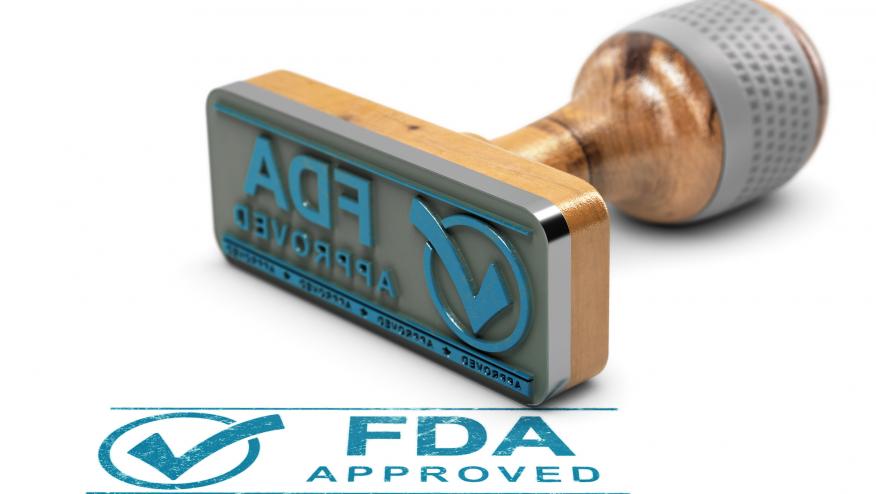First In Class, TYK2 Inhibitor FDA Approved for Psoriasis Save

Bristol Myers Squibb made a megablockbuster bet on deucravacitinib, an in-house experimental TYK2 drug, in the leadup to the big Celgene buyout, keeping it while auctioning off Celgene’s top-selling Otezla to Amgen for $13.4 billion.
Bristol Myers Squibb’s Sotyktu, a first-in-class, oral, selective, allosteric tyrosine kinase 2 (TYK2) inhibitor, is the only approved TYK2 inhibitor worldwide and the first innovation in oral treatment for moderate-to-severe plaque psoriasis in nearly 10 years.
On Friday, September 9, Bristol Myers Squibb announced the U.S. Food and Drug Administration (FDA) approved Sotyktu (deucravacitinib), a first-in-class, oral, selective, allosteric tyrosine kinase 2 (TYK2) inhibitor, for the treatment of adults with moderate-to-severe plaque psoriasis (PSO) who are candidates for systemic therapy or phototherapy.
FDA approval was based on two pivotal phase 3 POETYK PSO clinical trials demonstrated superior efficacy of over placebo and over apremilast (in a head-to-head trial) at improving skin clearance.
Sotyktu is a once-daily agents for active PSO, intended to be used solo and not recommended for use in combination with other biologics or potent immunosuppressants.
Sotkytu (pronounced, "So-TYK-2"), is also being developed and studied for use in psoriatic arthritis (PsA), SLE and inflammatory bowel diseases. By selectively inhibiting TYK2, deucravacitinib may inhibit signaling of interleukin (IL)-23, IL-12 and Type 1 interferons (IFN). Deucravacitinib is thought to represent a new class of small molecules (even though TYK2 is a member of the Janus kiFnJAK] family.
Unlike other JAK inhibitors that were given a boxed warning last year for cancer, thrombotic and cardiovascular risk, this new TYK2 inhibitor does not have such a "boxed warning". In fact, there is no boxed warning, nor is there a recommendation for repeated laboratory monitoring.
Safety concerns. The most common reported side effects (≥1%) include upper respiratory infections, blood creatine phosphokinase increased, herpes simplex, mouth ulcers, folliculitis, and acne. Adverse events of note include:
- CPK elevation: Grade 4 elevations seen in 9.3 per 100 patient-years) on Sotyktu and 4.1 per 100 patient-yearswith placebo. While most of this is ence of asymptomatic CPK elevation, there have been cases of rhabdomyolysis leading to drug discontinuation
- LFT elevations: ALT elevations ≥3 times the ULN was seen in 3.6 per 100 patientyears on Sotyktu and 1.6 per 100 patient-years with placebo. LFTs should be monitored in those with LFT elevations or known liver disease.
- Decreased GFR: was rarely reported in those with moderate renal impairment (eGFR 30-59 mL/min) at a rate of 1.6 per 100 patient-years, compared to 0.8 per 100 patient-years on placebo
- Lipids: Periodically evaluate serum triglycerides according to the clinical guidelines for hyperlipidemia, as Sotyktu has been shown to increase TG levels by 10 mg/dl.
- There is insufficient data on pregnancy and lactation effects in humans
- The safety of Sotyktu has not been established in pediatric patients
- Elderly: 10% of PSO patients studied were over 65 yrs; these patients in general had more overall serious adverse reactions, serious infections, and drug discontinuations due to adverse reactions compared with younger adults
- Evaluate for TB with screening test before use.
- Do not use with live vaccines
Dosing: The drug comes in 6 mg tablets and the usual dose is 1 tab daily (with or without food).
Elimination: The terminal half-life of deucravacitinib was 10 hours. The renal clearance of deucravacitinib ranged from 27 to 54 mL/minute.
Sotyktu is expected to be available to patients in the U.S. in September 2022.










If you are a health practitioner, you may Login/Register to comment.
Due to the nature of these comment forums, only health practitioners are allowed to comment at this time.